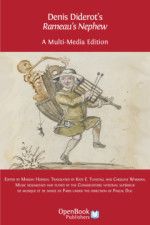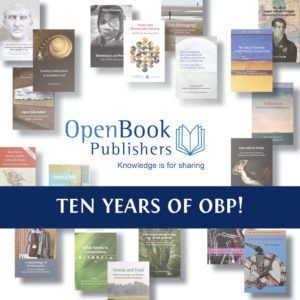Soso Tham and the Wisdom of Language
Tales of Darkness and Light: Soso Tham’s The Old Days of the Khasis is one of the least accessed titles in the Open Book online catalogue; there is not even a Wikipedia entry for Soso Tham (1873-1940), despite his being the most prolific Khasi-language poet ever to be set into writing. Such obscurity is not only the neglect of a sensitive North-Indian poet, who can hold his own in comparison with Keats, Wordsworth and Clare in the English canon; it is also emblematic of the suppression of eastern cultural practices by imperial western forces, as well as the forgetfulness of modern people of their ancient past. Soso Tham’s poetry seeks to reacquaint the Khasi people with their cultural and linguistic heritage, and assert pride in that inheritance against the voracious forces of colonial rule (under Britain until 1947) and modern suspicion of indigenous traditions. Janet Hujon’s (re)discovery of this distinctive and moving poet, is as much a personal communion between Khasi poets – Hujon is a Cambridge-based member of the Khasi community– as it is a communion across generations and estranged cultural discourses: Western and Eastern, urban and rural, modern and ancient.
There is such knowledge fossilised in the Khasi language. Hujon’s volume takes this further, embedding the sound of the poems into the silent pages with audio clips and hyperlinks—this is undertaken as part of the World Oral Literature series, which OBP is proud to host. As well as the unique privilege of listening to the poetry, Hujon’s enlightening footnotes throughout her translations remind us at every turn of the richness of the original Khasi—the closeness of descriptions to names, of sentience and objectivity—which has been quite comprehensively eroded in modern English. Hujon explains how her cousin precipitated an epiphany about the creativity of her Khasi mother tongue, saying of an old elevator ‘oh dear! Listen to her groan’. Hujon reflects, ‘I immediately emphasised with “her” suffering’.[1] The economy of this language, containing within it such emotional palpability, is often teamed with a daunting weight of practical rural expertise, which would be placed under threat if ever the language were to ebb away. For instance, a ‘tluh’ is s tree, ‘the fibres of which are used to make ropes or improvise head-straps, strings’.[2] Even the name of shersyngkai fish contains an imprint of its living character, evoking the supple movements of its ‘waist’ (Syngkai).[3] Soso Tham stresses man’s cooperation with the natural world as the foundation, and ongoing condition, of his survival; which is embodied in the character of the language itself.
As a studious schoolmaster and an enthusiastic translator of English works into Khasi, Tham had considerable creative and intellectual powers; yet he was not either kind of intellectual which Noam Chomsky, in his Delhi Lectures,[4] affirms to exist. Chomsky describes two kinds of intellectual; one which capitalises on popular movements in order to secure power for himself, and the other which seeks to serve those who are already in power, and so perpetuate the existing hierarchies. Neither such definition applies to Tham, as the power of true knowledge can be no different to the power of nature herself. For Tham, there is no distinction between poetic voice and natural phenomenon, nature is embodied in language as an ancient generative force which billows through time from the very first of the Khasis:
The Spoken Word was then revered
The humble Phreit was honoured, fed,
Hard they toiled from dawn to dusk
Knowledge cached within the womb
From where our legends sprang to life
And wingéd sprites sung into being[5]
The notion of knowledge being conscripted according to personal ambition cannot exist in the Khasi tradition; knowledge is entrusted to nature, and may be extracted only according to her will. It is to her mercy and susceptibility to ritual petitions, which the peaceful activities of mankind owe themselves.
There is no more appropriate forum for the publication of Soso Tham’s poetry, published in book form for the first time in English, than through open access platforms.[6] This is poetry which, to its very core, resists conscription by the modern world to its corrosive purposes—a world which suppresses the woods and their residents into devastating subordination. Throughout the collection, Tham laments the modern Khasi’s mistaken sense of inferiority in comparison to the hungry forces of industry and western mythology, urging them to reengage with the inspiration which surrounds them and courses through their blood. The free availability of this collection of Tham’s poetry online is a significant extension of his original project, enabling the wisdom imbued in the Khasi cultural inheritance—and the natural landscape—to be preserved and proclaimed to a western world all to ready to forget.
[1] Soso Tham, Tales of Darkness and Light, trans. By Janet Hujon (Open Book Publishers: Cambridge, 2018), p.12.
[2] Tham, 13.
[3] Tham, 29.
[4] https://www.openbookpublishers.com/product/300
[5] Tham, 24.
[6] In addition to the HTML and PDF versions being freely available, all the digital editions of this book are available to download for free thanks to the generous donors at Unglueit.



